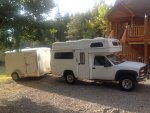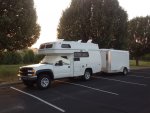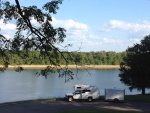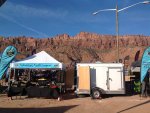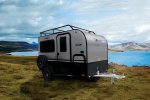Hey Paul, so the real use is still going to be primarily highway and maybe light dirt trails? How much weight do you need to carry?
Most 5x8's are going to be 3,500 lb capacity trailers, some are derated to 2,500 due to the axle size, some higher but I'd say 3,500 is going to be your most common. Based on the fact that you're seemingly running a single axle 5x8, that weight rating should be sufficient.
My tips, based on what I've researched and done with a cargo trailer, is as follows:
- Dexter axles are what you're looking for, they're considered the best axle in terms of quality and they have many options to fit your lug pattern needs. Plenty of trailer companies use them and it shouldn't be much hassle to find a trailer company in Colorado that comes factory with a nice Dexter 3,500 lb axle.
- Look for trailers with Dexters "EZ Lube" hubs. It's a hub setup that has a zerk fitting build into the outboard end of the spindle and makes grease maintenance a true breeze, compared to standard hubs that need broken down to clean and regrease ever so many miles. If your trailer will be a workhorse, as you describe, this will be a worthwhile find, trust me.
- Looking at your tow rig, I presume it runs 6x5.5" lug pattern and thus that's what you're searching for in a trailer axle. Trailers tend to default to a 5x4.5" lug pattern. Once you find a trailer dealer you like, ask about cost of getting one optioned with a Dexter 3,500 lb axle with 6x5.5" lugs and EZ Lube hubs. Once you have that cost in mind, compare it to the cost of buying a well built trailer without the right axle and the cost of swapping one in. I can tell you that retrofitting a 3,500 lb Dexter axle, with EZ Lube hubs, with no brakes and a 6x5.5" lug pattern is going to run you about $350 in parts (+/- $50 or so depending on buying locally vs online with shipping cost). Retrofitting a new axle in a new trailer is pretty straight forward if you're comfortable with jacks and some wrenches.
Another option you have is to run adapters to change the stock 5x4.5 lug pattern to a 6x5.5. This will cost you about $100 in adapters, but one potential benefit will be it'll give you a little more clearance for certain wheels on the trailer. The 5x4.5 to 6x5.5 adapters are a minimum of 2" thick, which means it'll push your wheels mounting surface 2" wider on each side of the trailer. You might need this extra clearance to run the Chevy wheels you want to run, or it might poke them out too much for the fenders, all dependant on the backspacing of the wheels you want to run. If you choose to swap axles instead of using adapters, you'll want to consider the wheel fitment when picking the new axles WMS width (WMS = Wheel Mounting Surface).
When it comes to lifting the trailer to fit slightly bigger tires, the easiest/cheapest way is going to be to flip the axle (presuming its a standard axle and not axle-less suspension). Most trailers will come with the axle mounted on top of the trailers leaf springs. Flipping the axle involves unbolting the axle from the springs, relocating it under the leaf springs, welding on a new perch mount and bolting it back together. This will lift the trailer by the diameter of the axle tube plus the thickness of the leaf springs as measured where the axle mounts on them. This is typically around a 3.5-4" lift for a similar trailer. That clearance should be enough to clear the fenders with slightly larger sized tires, like those on your truck. If not, one other option would be to raise the fenders some to gain that clearance.
Lastly, you can recoup some cost by selling the old wheels/tires and maybe axle (if you swap). I've had good luck selling used trailer axles for about $60 on CL and the wheel/tires sets for an easy $100. So if you take a new trailer, replace the axle, wheels and tires for a cost of roughly $500-600, you can recoup $150 of that selling the like new take off parts.
If you intend to take the setup off road and want some recommendations of suspension changes, I have some more ideas for you to consider, just let me know.
Also, let me know if there's anything mentioned I can expand on some more.
Jake

